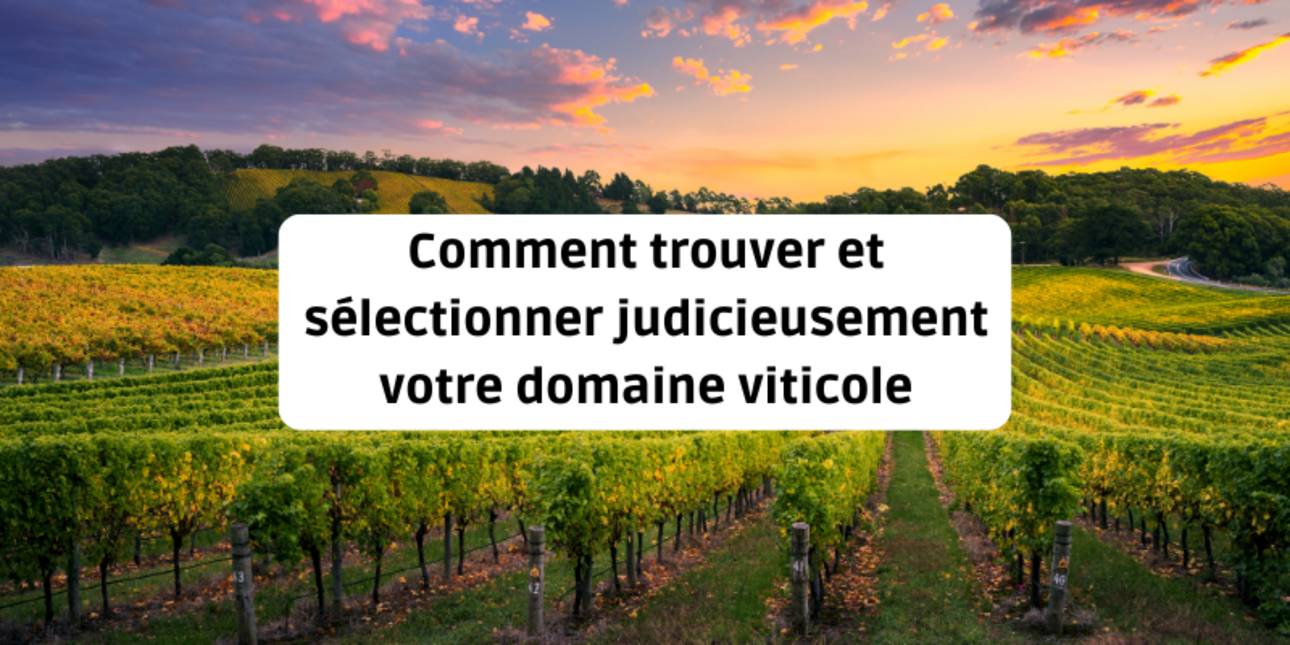
In the world of wine, buying a property is often seen as the realisation of a dream. Whether it's to launch your own production or to invest in a well-known estate, the quest for the perfect property, available on vineyardsbordeaux.com, can be both challenging and demanding. This article explores the complex process of finding a winery for sale, examining various criteria from ideal location to technical and financial evaluation.
Defining your objectives is fundamental to your search for wine-growing estate. Clarify your expectations: would you prefer a ready-to-use farm or to embark on an adventure by creating your own from scratch? Also think about the type of vineyard and the surface area required. Think about how you want to market your wine: direct sales with tastings or wider distribution. By answering these questions, you'll be able to refine your project and find the winery that best suits your needs and aspirations.
To find the ideal wine estate, start by setting a price. Although this is flexible, it will guide your search. Your available funds, the expected profitability of wine production and the investment required will all influence this budget. By consulting financial experts and exploring different sources of information, you'll gain a better understanding of the costs associated with buying and running a wine property.
Once you're ready, carry out your active search by exploring several channels. Websites specialising in the sale of wine estates offer a wide selection. Specialist estate agents are excellent resources for pointing you in the direction of suitable properties. Your professional contacts such as winegrowers, négociants or oenologists can play a crucial role in directing you towards properties not yet on the public market, thanks to their in-depth knowledge of the local market and their network. By using these sources, you maximise your chances of finding the ideal rare pearl.
The region is important when choosing an elegant establishment. Each wine region has its own characteristics in terms of climate, soil, terroir and winemaking traditions. Choosing a beautiful region that matches your production goals and wine preferences (red, rosé, white) is essential. In France, the 16 major wine-growing regions - Alsace, Bordeaux, Burgundy, the Loire Valley, etc. - cover more than 80 départements, totalling around 750,000 hectares of vineyards and producing more than 3,240 different world-renowned wines.
Climate and soil are decisive in viticulture, as they influence the growth of the vines and the quality of the grapes produced. Understanding the local climate, with its temperatures, rainfall and seasons, is essential. In France, climates vary: temperate on the Atlantic coast, Mediterranean in the south-east, mountainous in the Pyrenees and Alps, continental in the east. Similarly, the type of soil, whether limestone, clay, schist, gneiss, sandstone or granite, has an impact on the wines produced. Choosing a climate and soil suited to your grape varieties will maximise your chances of success in viticulture.
Various aspects of the vineyard are vital to the quest for a great wine estate. The size of the vineyard is crucial to making its production profitable. The grape varieties planted influence the style and quality of the bottled wines. The age of the vines affects the aromatic complexity and maintenance of the vineyard. The general condition, including the health of the vines and the quality of the soil, indicates its long-term viability. By taking these criteria into account, buyers can make informed decisions when purchasing a wine estate.
When assessing the buildings and equipment on a wine estate, it is essential to consider a number of elements. Examining infrastructure such as cellars and wineries is essential for vinification and wine storage. Checking their condition and capacity is also vital for efficient wine production. In some wineries, equipment is not included in the sale, so buyers should consider investing if necessary. Clarifying from the outset what is included in the sale is fundamental to planning for the eventual purchase of additional equipment.
Finally, consider the personal aspect. Buying a winery can mean a significant change in lifestyle. Make sure that it matches your expectations and your current lifestyle. If you lack experience, surround yourself with competent professionals to guide and advise you throughout the process. To find out more about the advantages of becoming a winegrower, see here.
In short, the search for the ideal wine estate requires careful thought and planning. By defining your goals, setting a realistic budget and taking into account key criteria, you'll be better prepared to find the winery of your dreams and make your plans in the world of wine a reality.